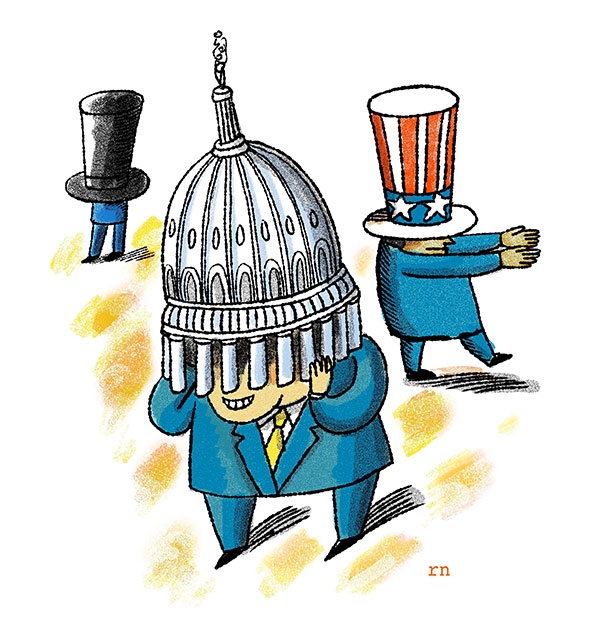Faculty Advice: Presidential Counsel
| by Jason Warburg

With the United States poised to elect a new president in 2016, Communiqué asked six faculty members in the Institute’s Graduate School of International Policy and Management to respond to this question: What advice would you give the next president of the United States?
As you take office as the 45th president of a republic that aspires to bestow all human beings with the inalienable rights of life, liberty, and the pursuit of happiness, you must be guided by such principles in all your decisions. Today, millions of immigrants work in the pursuit of these principles but live in fear as they are considered criminals for daring to work without proper documents. It is past time that you grant them the path to a life with dignity and freedom. —William Arrocha, Assistant Professor, International Policy and Development
The next president will face a number of complex challenges on the foreign policy and security front, including the terrorist threat from the Islamic State, the conflict in Syria, the Iran nuclear deal, and developments in North Korea, Russia, China, and the Asia-Pacific region, among others. This will require a set of strategies that focuses on the long term—keeping in mind known/anticipated (and the possibility of unknown) consequences—and that does not tie the U.S. down with inflexible policy commitments. —Sharad Joshi, Assistant Professor, Nonproliferation and Terrorism Studies
Focus on redesigning the American education system. First, Americans should stop seeing themselves as better than anyone else and the United States as the most powerful country that can save the world. Second, Americans must overcome their simplistic worldview that “those who are not with us are against us.” Emphasize the importance of training in global history, geography, and international travel. All policies must incorporate greater self-examination by the United States, with an emphasis on dialogue imbued with concern for justice. —Nukhet Kardam, Professor, International Policy and Development; Public Administration
Don’t assume you understand presidential power. It’s not like TV, unless you’ve seen the BBC comedy Yes, Minister.
Don’t assume you understand presidential power. It’s not like TV, unless you’ve seen the BBC comedy Yes, Minister. After Eisenhower was elected, Harry Truman said, “He’ll sit here, and he’ll say, ‘Do this! Do that!’ And nothing will happen. Poor Ike—it won’t be a bit like the Army. He’ll find it very frustrating.” If you don’t want to be frustrated by cabinet members who say “yes” but do “no,” or bureaucrats who leak information, read Richard Neustadt’s book Presidential Power. Then watch Yes, Minister again. —Jeffrey Lewis, Director, East Asia Nonproliferation Program at the Institute’s James Martin Center for Nonproliferation Studies; Adjunct Professor, Nonproliferation and Terrorism Studies
I believe we should revisit the recommendations of the bipartisan Simpson-Bowles debt reduction plan of 2013. The underlying principles of that plan are sound, and they specifically address the most pressing issues, such as rising health care costs, an aging population, and an unintelligible and unfair tax code. Unfortunately, tax reform and raising the retirement age are not going to win votes, but we need to act soon. And since the president has to shape the budget together with Congress, I’m not holding out hope. —Moyara Ruehsen, Associate Professor, Business Administration
What the world needs now is… love. We need a clear-eyed, sure-footed stretch towards creating institutions that promote human solidarity and collaboration in every domain—from grappling with racism and drought to mitigating global climate change. The Paris climate agreement is a beacon, the biggest collective human undertaking ever attempted. With seven billion of us living in close quarters and relying on deteriorating life-support systems, the way forward requires inspired leader- ship in nudging us all toward cooperation. —Lyuba Zarsky, Professor, Business Administration and International Environmental Policy
For More Information
Eva Gudbergsdottir
evag@middlebury.edu
831-647-6606
